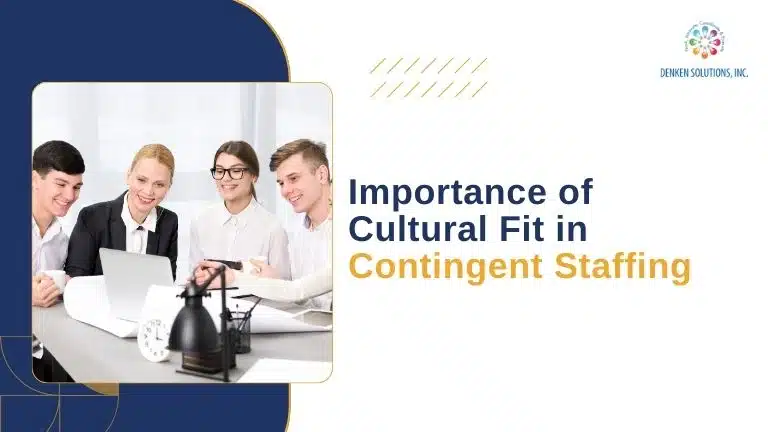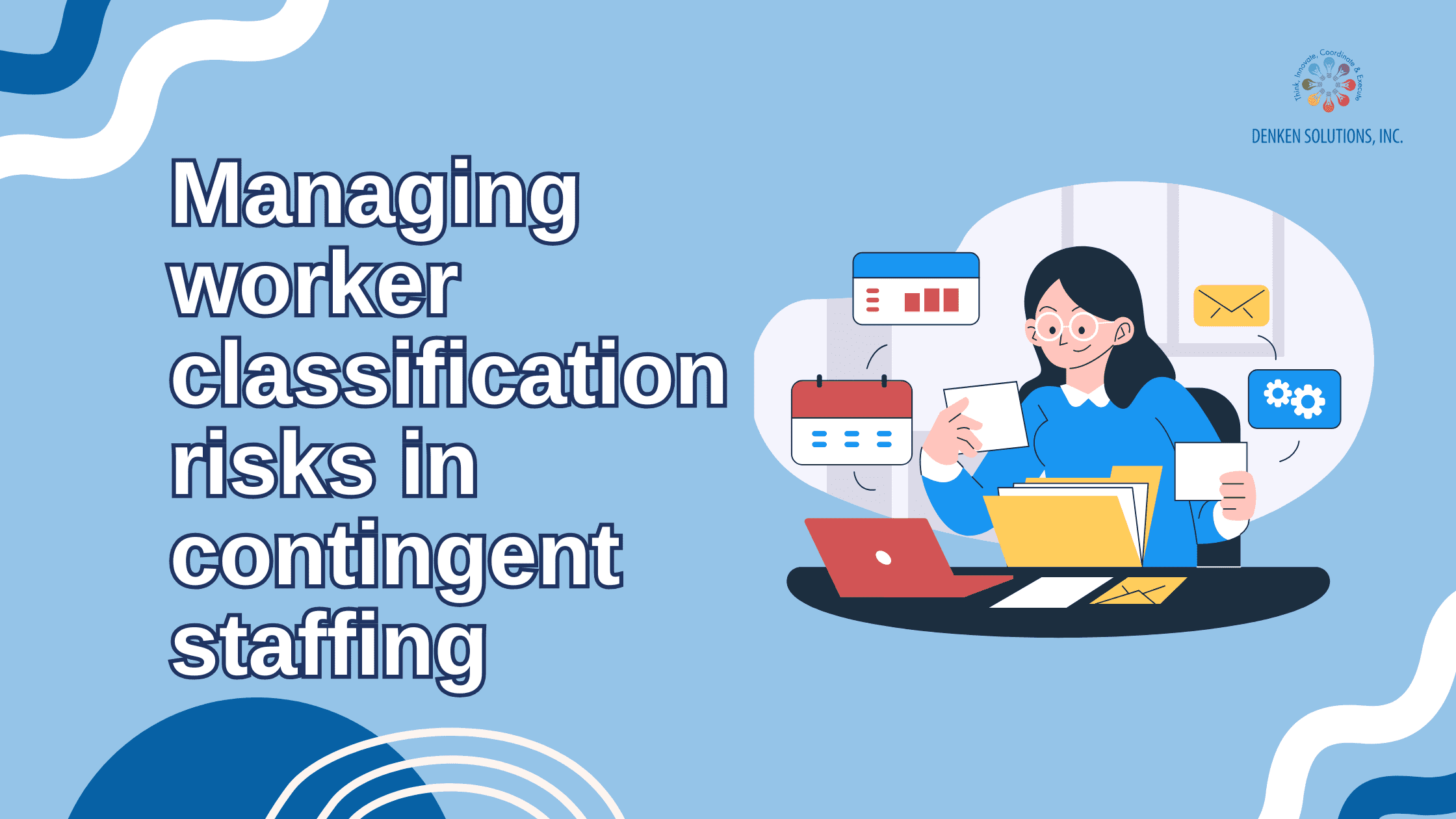Cultural Fit in Contingent Staffing: Why It Matters for Workforce Success
While hiring teams focus on factors such as educational background, skills, and experience, they often overlook a crucial element—cultural fit. This concept defines the alignment between a candidate’s beliefs, values, and behavioral traits with an organization’s core values, business processes, and practices.
Even as companies shift towards skill-based hiring to prioritize competencies over experience, the absence of cultural fit can lead to disengagement, higher turnover, and reduced workplace productivity. In this article, we explore the significance of cultural fit in contingent staffing, how it impacts employee retention, and how businesses can integrate culturally fit candidates into their global workforce.
Understanding Cultural Fit in Organizations
Cultural fit does not imply that employees must always agree or share identical work styles. Instead, it reflects how well an employee’s core beliefs and behaviors integrate with an organization’s work culture.
For example, one employee might prefer structured schedules to meet deadlines, while another values flexible work hours for better work-life balance. If an organization embraces flexibility, both employees can thrive. However, in a rigid corporate environment, only the first employee may be a cultural fit.Soft skills like communication, adaptability, decision-making, and emotional intelligence are key indicators of cultural fit. In industries like IT, where innovation is crucial, employees must be adaptable and open to change. A highly skilled individual who resists new approaches might not align with the company’s dynamic work culture, making them a mis-hire despite their technical expertise.
Stay ahead of evolving contingent labor trends to optimize workforce flexibility, enhance productivity, and adapt to changing business needs.
Why Cultural Fit is Essential in Contingent Staffing
When hiring culturally fit candidates for contingent roles, organizations benefit in multiple ways, from improved workforce engagement to lower turnover rates. Below are key reasons why cultural fit matters in contingent staffing:
Boosts Employee Engagement and Workplace Productivity
Blending contingent workers with full-time teams helps businesses remain agile and competitive. However, if contingent employees do not align with the company’s culture, collaboration can suffer.
Cultural fit and workplace productivity go hand in hand—when contingent workers share company values and behavioral norms, they develop a sense of belonging. This fosters stronger team cohesion, reduces workplace conflicts, and enhances overall performance.
Reduces Turnover by Preventing Mis-Hires
Assessing cultural fit from the outset saves organizations from the costly cycle of screening, shortlisting, and replacing mis-hires. The impact of cultural fit on employee retention is significant—when contingent workers align with company culture, they are more likely to remain engaged and committed to their roles.
For instance, hiring a highly qualified engineer for a fast-paced construction project might seem ideal. However, if the engineer prefers a flexible work style while the project demands rigid structures and tight deadlines, they may struggle to meet expectations. This mismatch could result in the employee leaving prematurely, forcing the hiring team to restart the recruitment process.
Fosters a Cohesive Culture with Shared Values
In a global workforce, differences in work styles and perspectives are inevitable. However, when contingent employees align with company values, they can collaborate effectively with full-time teams, ensuring a cohesive and positive work environment.
Cultural fit in the global workforce is especially important for multinational businesses managing diverse teams across locations. Despite variations in cultural backgrounds, employees who share a common understanding of the company’s mission and goals are better equipped to contribute to long-term success.
Enhances Innovation and Adaptability
Culturally fit contingent workers are more likely to support organizational change and innovation. Their ability to align with the company’s values enables them to contribute fresh perspectives while adapting to industry shifts.
For example, a food and beverage company expanding into new markets may hire specialized chefs as contingent staff to meet seasonal demands. If these chefs understand and embrace the company’s values, they can introduce innovative dishes that appeal to local tastes. Conversely, if they lack cultural fit, they may struggle to align with the company’s brand vision, affecting business growth.
Ensuring contingent workforce compliance is crucial for mitigating legal risks, maintaining fair labor practices, and adhering to local regulations.
Best Practices for Hiring Culturally Fit Contingent Workers
To ensure cultural fit in contingent staffing, organizations should adopt the following best practices:
Clearly define company culture: Outline core values, work ethics, and expectations in job descriptions.
Assess soft skills and adaptability: Evaluate candidates’ communication, collaboration, and problem-solving abilities during interviews.
Leverage behavioral interview techniques: Use situational questions to assess how candidates align with company culture.
Encourage diversity while maintaining core values: Ensure inclusivity without compromising essential cultural elements.
A well-structured contingent hiring process helps businesses efficiently source, evaluate, and onboard skilled temporary workers while ensuring compliance.
Conclusion
Cultural fit in contingent staffing is a critical factor in workforce management. By prioritizing cultural alignment alongside skills and experience, businesses can improve employee engagement, enhance productivity, and reduce turnover. In a global workforce, hiring culturally fit candidates ensures smoother collaboration and long-term business success.
Would you like assistance in refining your hiring strategies to include cultural fit assessments? Contact us today to explore tailored staffing solutions that align with your company’s values and goals.
Want to build a contingent workforce with culturally fit individuals? Connect with Denken Solutions!



